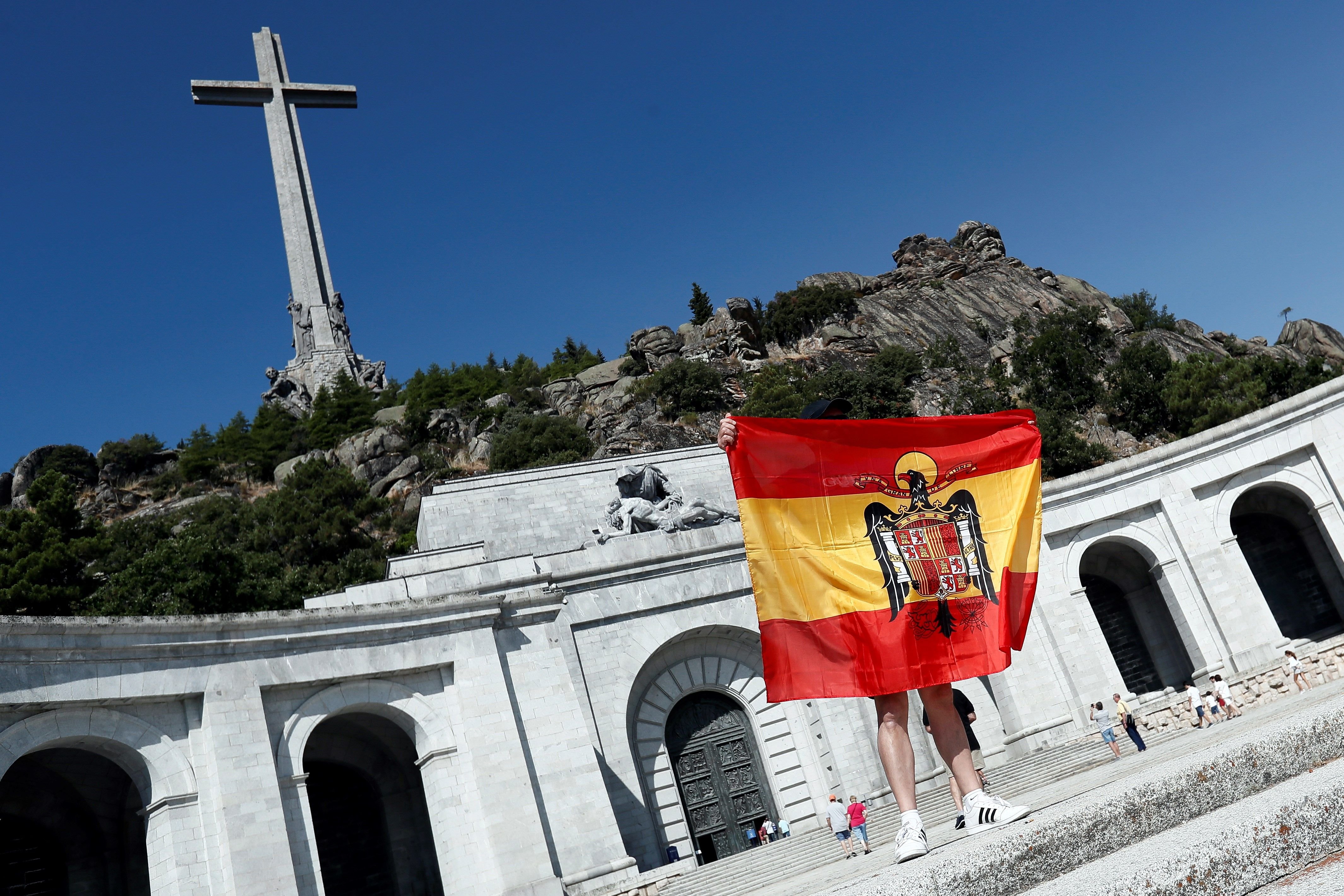The seven grandchildren of dictator Francisco Franco have sent a letter to the Spanish Ombudsman urging them to appeal to the Constitutional Court the executive order agreed by the Spanish government to start the process to exhume their grandfather.
The letter, which news agency Efe has seen, was presented by lawyer Felipe Utrera Molina, on behalf of María del Carmen, Mariola, Francisco, Mar, Cristóbal, María Aránzazu and Jaime Martínez-Bordiú y Franco.
Franco's family repeat that exhuming the dictator's remains would go "against the wishes of his descendants". They also reject the manner chosen by the Spanish government, an executive order, which they say can only be used in cases of "extraordinary and urgent need".
"It cannot be understood at all that such a prerequisite is fulfilled in the current case, it not being a situation which has arisen from new conditions and would require an immediate legal adjustment," the letter says.
The text argues that, on the contrary, it's a question of a "perfectly stable situation, peacefully allowed for decades and which is not affected by any circumstance demanding immediate action". They note that Franco has been interred in the Valle de los Caídos ("Valley of the Fallen") for 43 years.
The family argue that the executive order violates article 86.1 of the Spanish Constitution which "In cases of extraordinary and urgent need, the Government may issue temporary legislative provisions which shall take the form of" executive orders.
"Unconvincing excuses"
"The excuses (not justifying reasons) wielded to protect the dictating of the executive order are not at all convincing or sustainable, given that the resolutions and reports it claims to be based on do not require, by their own nature, urgent and immediate action," they say.
Franco's descendants are alluding to a non-binding motion passed in the Congress in May 2017 calling for his remains to be exhumed and a report from the UN working group on enforced or involuntary disappearances.
The grandchildren add that the executive has "overstepped its powers" by issuing an executive order on a matter "which should be subject to the full parliamentary process" and that this "not only affects [the family's] private interests, but also the general interest of all citizens, who have the right for their political representatives in the Parliament to take part in drafting legal rules".

